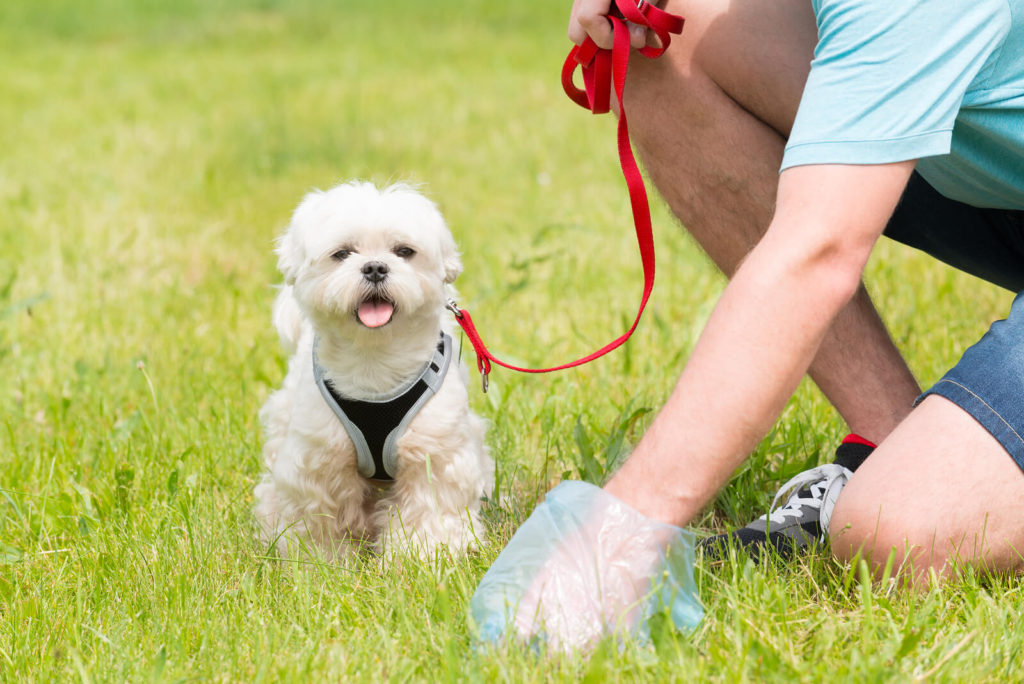
Does Dog Poop Contain Harmful Diseases?
Dog poop is a part of our everyday life. Whether taking care of your own pet, petsitting, or simply feeling something squish underneath your sneaker, it is important to adopt best practices around the inevitable cleaning and handling of animal waste to avoid harmful contact with your immune system.
The first step to steering clear of contact with diseases transferred through dog feces is gaining knowledge of what they are, and how to effectively clean up after a pet.
What diseases are found in dog poop?
In an article with petmd.com, Dr. Oscar Chavez, DVM, explains that diseases potentially transferred from animals to humans are Zoonotic, and include Salmonella, Campylobacter, and Giardia, as well as varieties of worms.
(If we’d prefer not to reference or link to another article, heres an alternative paragraph: Diseases potentially transferred from animals to humans are called Zoonotic, and include Giardia, Salmonella, and Campylobacter, as well as varieties of worms.)
If your pet is experiencing symptoms of any illness, such as blood, mucus, or worms in stool, or vomiting and diarrhea, extra caution is imperative. But our dogs can carry these diseases without contracting them, so vigilance with hygiene is important, even when animals aren’t exhibiting symptoms themselves.
Handling and Disposing of Waste:
Proper handling and disposal of dog poop is the first guard against personal infection.
When picking up dog poop outside or inside, use a thick, plastic bag as a protective layer between the feces and your skin. Enclose the poop using the outside of the bag, pick it up, and flip the bag inside-out so that the waste is now on the inside of the bag. Quickly tie-off the bag and dispose of it in a sealed waste basket.
If an animal is unhealthy, or the plastic bag doesn’t seem hardy enough to keep you out of harm’s way, enlist disposable rubber gloves in addition to the bag, or invest in dog-waste specific bags with extra thick lining to prevent punctures.
Should dog waste leave a trail on a surface that is highly trafficked by other animals or children, consider rinsing with a solution of water and bleach, and using a metal scraper to uproot fecal particles from the surface.
Cleaning Messes Inside the Home:
For messes inside of the home, there’s no need for fancy or expensive cleaning solutions. First, follow the same instructions for cleaning up the poop inside as you would outside. After that, continually blot the infected area with a solution of warm water and a few drops of dish soap.
If the mess has left a stain, many dog care and carpet cleaning professionals recommend blotting with vinegar to remove the final traces of your pet’s accident.
Keeping Your Dog Clean:
If a mess still lingers on your animals fur, give them a bath as soon as possible, washing their coat thoroughly with dog shampoo and warm water.
If you are using a bath or shower also used by humans or other animals, do your best to disinfect the space with an antibacterial cleaner after the job is done.
Preventative-ness Is Next to Cleanliness:
A healthy dog is at low risk of spreading disease to humans through its waste.
In public places, keep your animal at a safe distance from other dog waste. Finally, stay current with vaccinations and visit the vet quickly when symptoms of illness arise in your pet.

